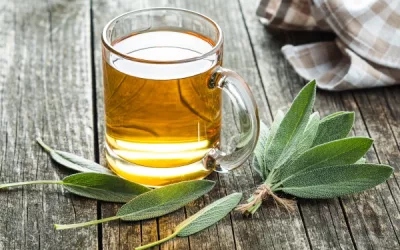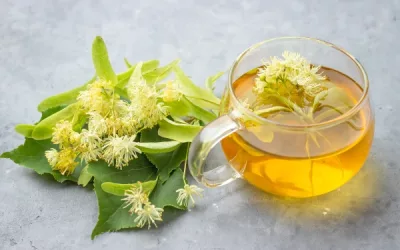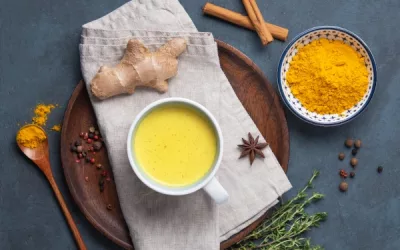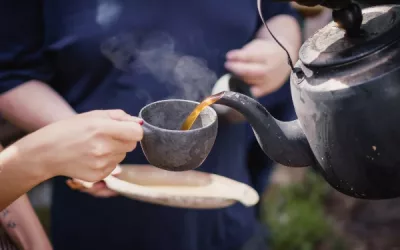Have you ever sipped a warm cup of lemon tea and felt instantly refreshed? This delightful beverage is more than just a comforting drink; it boasts a host of health benefits, from boosting immunity to aiding digestion. In this ultimate guide, we’ll explore how to make the perfect lemon tea, its variations, and even how it can support weight loss. Whether you’re a tea enthusiast or looking for a refreshing drink, discovering the wonders of lemon tea is essential. Let’s dive in!
Table of Content
What is lemon tea?
Lemon tea is a type of tea that is typically made by combining hot water with tea leaves or a tea bag and adding lemon juice or lemon slices for flavor. It can be enjoyed in various forms, such as:
- Black tea with lemon: A classic version where black tea is brewed and fresh lemon juice or slices are added to enhance the flavor.
- Green tea with lemon: A lighter option that combines green tea with lemon, offering a refreshing and mildly tangy taste.
- Herbal lemon tea: Some teas are infused with lemon flavors, like lemon balm or lemongrass, providing a citrusy and aromatic taste without needing traditional tea leaves.
Lemon tea can be consumed hot or iced and is often sweetened with honey or sugar. The addition of lemon gives the tea a bright, zesty flavor and is thought to have various health benefits, such as boosting immunity, aiding digestion, and providing antioxidants.
What vitamins are found in lemon tea?
Lemon tea is a good source of several essential vitamins.
- Vitamin C from lemons boosts your immune system and skin health.
- Vitamin B6 supports brain health and helps convert food into energy.
- Folate (Vitamin B9) is crucial for cell growth and function.
- Potassium in lemons helps regulate blood pressure and maintain heart health.
- Antioxidants in tea contribute to overall health by protecting cells from damage.
Regularly drinking lemon tea can help you get these important vitamins, which support various bodily functions.
Lemon tea is not just a comforting drink; it’s packed with nutrients that benefit your health in multiple ways. Whether you’re looking to boost your immunity, relieve a sore throat, or just enjoy a tasty beverage, lemon tea is a great choice.
During World War II, British soldiers often carried lemons and lemon tea in their rations. These citrus fruits were not only a source of flavour but also a vital supply of Vitamin C that helped prevent scurvy among the troops. The soldiers would brew lemon tea to stay hydrated and healthy amidst the harsh conditions of war, making it a staple in their diet.
On a more personal note, I remember the time I caught a nasty cold last winter. My throat was sore, and I felt miserable. My grandmother suggested making a pot of lemon tea with honey.
The first sip felt like a warm hug for my throat, and after a few days, I started to feel much better. Since then, lemon tea has become my go-to remedy whenever I feel under the weather. It’s amazing how something so simple can have such a soothing effect!
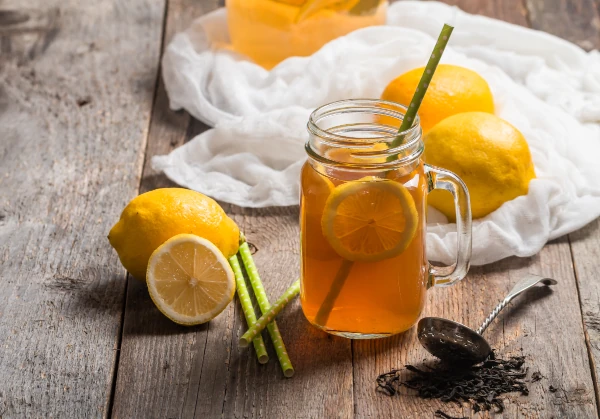
How do you make the perfect lemon tea?
Making the perfect lemon tea can be a delightful experience and it’s quite simple once you’ve got the basics down. The right balance of flavours is key, and it starts with good quality ingredients. Here’s a handy table to guide you through the process:
| Ingredients | Preparation Steps | Flavour Enhancement Tips |
|---|---|---|
| 1 cup of water | Boil the water. | Use filtered water for the best taste. |
| 1 tea bag (black/green) | Steep the tea bag in boiling water for 3-5 minutes. | Choose a tea variety you enjoy, black or green. |
| 1 tbsp lemon juice | Add freshly squeezed lemon juice to the tea. | Use organic lemons for a natural, rich flavour. |
| 1-2 tsp honey or sugar | Stir in honey or sugar to taste. | Consider using honey for a smoother, healthier option. |
| Lemon slices | Garnish with lemon slices. | Thin slices add a subtle zest without overpowering. |
| Fresh mint leaves (optional) | Add mint leaves for extra freshness. | Fresh mint gives a refreshing twist. |
| A pinch of ginger (optional) | Add a pinch of grated ginger for a spicy kick. | Fresh ginger adds warmth and depth. |
This table outlines everything you need to make a delightful cup of lemon tea. Start with boiling water and choose your favourite tea variety. Freshly squeezed lemon juice and a sweetener of your choice enhance the tea, and garnishes like lemon slices, mint, or ginger can elevate the flavour even more.
What are the health benefits of lemon tea?
Lemon tea isn’t just tasty; it’s also packed with health benefits. Here’s why you might want to make it a regular part of your routine:
- Boosts immune system
- Aids digestion
- Improves skin health
- Supports weight loss
- Provides hydration
- Enhances mental clarity
Lemons are rich in Vitamin C, which is great for your immune system. Their acidity helps with digestion and can even improve skin health by keeping it clear. Many people find that lemon tea supports weight loss due to its metabolism-boosting properties. And of course, it’s an excellent way to stay hydrated while enjoying a refreshing drink.
What are some variations of lemon tea?
If you love lemon tea but want to mix things up, there are plenty of variations to try. Adding different ingredients can completely change the flavour profile:
- Iced lemon tea
- Lemon ginger tea
- Lemon mint tea
- Spiced lemon tea
- Lemon honey tea
- Green lemon tea
For a cool and refreshing option, try iced lemon tea. Simply brew the tea, let it cool, and serve it over ice. Lemon ginger tea is perfect for a warming, spicy kick, while lemon mint tea adds a cool freshness.
You can spice things up with ingredients like cinnamon or cloves in spiced lemon tea. For a smoother, sweeter option, lemon honey tea is a treat. And if you prefer green tea, replace the black tea with green for a lighter, more delicate flavour.
In the 18th century, tea was a major commodity, and lemon tea was considered a luxurious beverage among the British elite. Catherine of Braganza, the Portuguese princess who married Charles II of England, popularised tea drinking in England.
At her lavish gatherings, guests would often enjoy tea with a slice of lemon, a practice that soon became fashionable.
I remember when I first tried making lemon tea at home. I had just returned from a holiday in the Mediterranean, inspired by their delicious and refreshing beverages. I followed a simple recipe, but it lacked the zing I had hoped for.
Then, I started experimenting with organic lemons, a dash of honey, and occasionally, a hint of ginger. It transformed the drink into a delightful experience. Now, making lemon tea is a comforting ritual, reminding me of those sunny days abroad.
What variations can you try with lemon tea?
Lemon tea is not just a “one-size-fits-all” beverage. It’s a dynamic drink that can be enjoyed hot or cold, plain or spiced, with twists and tweaks that can surprise your taste buds. Let’s dive into the diverse world of lemon tea variations.
Fancy a cool refreshment on a hot day? Iced lemon tea is your go-to. Need a warm, soothing drink with a kick? Spiced lemon tea fits the bill. Want to give your immune system a boost while sipping a delicious brew? Ginger lemon tea has got you covered.
Looking for something refreshing and slightly zesty? Lemon mint tea is what you seek. Craving sweetness without compromising health? Honey lemon tea is perfect for you. Each of these variations brings unique flavours and health benefits to the table.
How do you prepare iced lemon tea?
Preparing iced lemon tea is less of a complicated science and more of a fun experiment. All you need are some basic ingredients and a few simple steps.
- Boil water and steep your favourite black tea or green tea for 3-5 minutes.
- Add freshly squeezed lemon juice while the tea is still hot.
- Sweeten it with sugar, honey, or any sweetener of your choice.
- Let it cool down to room temperature, then refrigerate until chilled.
- Serve over ice cubes with a lemon slice for the ultimate refreshing experience.
Voila! You’ve got a drink that’s perfect for lazy afternoons or steamy summer days. You can even add a splash of soda water if you want to get all fancy and make it fizzy.
What spices can be added to lemon tea?
Spicing things up in the tea world isn’t just reserved for chai. Lemon tea can be a blank canvas for your spice rack too.
- Cinnamon Sticks: Adds a sweet, woody flavour.
- Star Anise: Offers a licorice-like aroma.
- Cloves: Infuse a strong, spicy kick.
- Cardamom Pods: Provide a complex, slightly spicy and sweet flavour.
- Nutmeg: A dash of this can bring a warm, nutty note.
You can toss the spices into the boiling water along with the tea leaves and let them infuse together. Trust me, a spiced lemon tea on a cold winter’s day is like a warm hug in a cup.
How does ginger enhance the flavour of lemon tea?
Ginger and lemon are like the Batman and Robin of the tea world. They complement each other perfectly, creating a dynamic duo that packs a punch.
- Warmth: Ginger adds a warming quality, making the tea more comforting.
- Spice: The mild spiciness of ginger offsets the tartness of lemon.
- Balance: Ginger’s earthy tones balance the citrusy brightness of lemon.
- Aroma: It introduces a fresh, zesty fragrance that tantalises the senses.
- Health Boost: Ginger is known for its anti-inflammatory properties and digestive benefits. Combined with lemon’s vitamin C, it’s a health elixir.
To incorporate ginger, just peel and thinly slice a knob of fresh ginger, then steep it in boiling water with your tea and lemon juice. It’s as simple as that.
Believe it or not, lemon tea has an interesting historical anecdote. During the 18th century, European high society began to adopt tea consumption from Asia. To emulate the exotic experience, they started adding lemon, a luxury item at the time, to their tea.
This was particularly popular in Russia, where lemon slices were often served alongside tea, a tradition that continues to this day. It’s fascinating to see how a simple habit transformed into a timeless classic, weaving its way through cultures and eras, just like you’ve explored various twists on lemon tea today.
How much lemon juice should I use for lemon tea?
The quest for the perfect lemon tea is a bit like Goldilocks and the three bears – you’ve got to find what’s “just right” for you. But let’s cut to the chase: the right amount of lemon juice in your cup isn’t an exact science; it all boils down to balance, personal taste, and a little bit of alchemy.
First things first, the aim is to balance the delicate harmony between the tanginess of the lemon and the robustness of the tea. You don’t want to obliterate one or both in a misjudged citrus kerfuffle. This brew can be a divine concoction of zesty goodness, but go too far and you might as well be sucking on a lemon slice straight up.
What is the recommended amount of lemon juice per cup?
If you’re looking for a starting point (which I’m assuming you are since you’re still reading this), the recommended amount is typically about:
- 1 to 1.5 tablespoons of lemon juice per cup (240 ml) of tea.
Lemons tend to be moody citrus fruits; their juices can range from barely perceptible to lip-puckeringly sour. Stick to the above guideline, but don’t be afraid to tweak it—your taste buds are the judge.
How does acidity affect the taste of lemon tea?
Acidity in lemon tea is like salt in food; too little and it’s blah, too much and it’s yikes! Here’s how it plays out:
- Enhances the tea’s natural flavours, giving it a refreshing zing.
- Cuts through any bitterness in the tea, creating a well-rounded taste.
- Balances sweetness if you add sugar or honey, preventing it from becoming cloying.
- Highlights the herbal or fruity notes in more complex tea blends.
When you get it right, acidity should elevate the experience, not distract from it. Imagine sipping a tea that’s a symphony of bright, piquant flavours weaving through every sip.
Can too much lemon juice be harmful?
While admittedly, lemon grabs all the health headlines with its vitamin C and antioxidant glory, nobody’s suggesting you chug it like water. Too much lemon juice can, indeed, rain on your parade:
- Erosion of dental enamel due to high acidity.
- Potential stomach problems or acid reflux if you overdo it.
- Interference with certain medications that are sensitive to acidity levels.
Keep it to about that 1 to 1.5 tablespoons mark per cup, and you’ll enjoy all the perks without the pitfalls.
In the grand scheme of lemon tea, these finer points help you strike that delicate balance. The idea is to play around with the ratios until you discover that sweet spot, or should I say ‘zesty spot,’ that suits your taste buds perfectly.
Back in the 18th century, when tea first became the trendy beverage in Europe (long before matcha lattes and bubble tea took over Instagram), they valued tea leaves so highly that folks would actually lock them up!
Adding lemon in those days wasn’t just about flavour; imagine it as a status symbol. Meticulously prepared by servants then, the ladies and gents would sip it in their parlours, probably debating the impeccable amount of lemon juice, just like you now.
So, as you perfect your recipe, take a moment to appreciate how your humble lemon tea has journeyed through history, often viewed as a mark of sophistication and a well-balanced palate.
Is honey necessary in lemon tea?
Well, let’s dive right into it. The question is whether honey is an absolute must in your beloved lemon tea. Spoiler alert: It’s not. But before you tea enthusiasts start panicking or turning your noses up, let’s talk about why honey often finds its way into your steaming cup of lemon heaven.
We’re talking about sweetness, health perks, alternatives, diet restrictions, and the little boost in flavour that honey brings.
When it comes to adding honey, it’s about choice and taste more than a necessity. Some folks can’t imagine sipping their lemon tea without that golden touch, while others snub it like it’s the last piece of soggy toast.
It all boils down to what you fancy and, honestly, what your diet allows.
What are the benefits of adding honey to lemon tea?
So, why do people go gaga over honey in their lemon tea? It’s not just because they like to swirly-sip something sweet.
- Natural Sweetness: First things first, honey is a natural sweetener. It can add a touch of sweetness without making you feel like you’re guzzling down a sugary soda.
- Antioxidants: Honey isn’t just about taste; it’s packed with antioxidants that can help fight off those pesky free radicals.
- Soothing Agent: If you’ve got a sore throat or just want something soothing, honey’s your mate. It’s got natural antibacterial properties and it’s a throat’s best friend.
- Balances Acidity: Lemon is tangy and acidic, right? Honey helps balance that out, making the whole drink smoother and less likely to have you puckering like you bit into a raw lemon.
- Energy Boost: Contains glucose and fructose which give you a quick energy fix. Perfect for that mid-afternoon slump.
That said, if you’re a stickler for healthy ingredients or need a little immune boost, honey has got your back.
What alternatives can be used instead of honey?
But what if honey isn’t your jam? Maybe you’re vegan, allergic, or just don’t have any in the cupboard. No worries—there are plenty of alternatives.
- Agave Nectar: Similar to honey, it’s vegan-friendly and has a mild, sweet flavour that can complement lemon tea perfectly.
- Maple Syrup: Yep, the stuff you drown your pancakes in. It’s got a distinct flavour, but if you like to experiment, it can be a nice change.
- Stevia: A zero-calorie sweetener derived from plants. It’s perfect for those counting calories or managing blood sugar levels.
- Coconut Sugar: A natural sweetener made from the sap of coconut palm tree flowers. It has a low glycaemic index, which is great for avoiding sugar crashes.
- Date Syrup: Made from dates, it’s natural and sweet, making it a good honey alternative while adding its own unique taste to your tea.
These substitutes don’t only cater to different dietary needs but also offer varied flavours for your palate to enjoy.
How does honey affect the overall flavour?
Now, let’s talk taste. Honey in lemon tea can be a game-changer—or so they say.
- Richness: Honey adds a rich undertone, making the lemon tea feel more well-rounded and less like you’re sipping a health tonic.
- Flavour Notes: Depending on the type of honey you use—wildflower, clover, or Manuka—you’ll get additional flavour notes that can make your lemon tea more interesting.
- Sweet and Tangy Balance: Honey helps balance the tanginess of lemon, giving you a more harmonious sip rather than a sharp hit of citrus.
- Smooth Texture: Unlike sugar, honey dissolves well, giving the tea a silkier texture, making your drink smooth without any grainy bits.
In essence, honey makes lemon tea feel like a warm hug, adding layers of flavour, and giving it a balanced sweetness.
Did you know that the ancient Egyptians used honey almost like we use coffee today? They believed it rejuvenated the body and soul, considering it divine food brought from the gods.
Everyone from Pharaohs to the common folk consumed honey for its supposed health benefits. When you think about it, adding honey to your lemon tea is kind of like carrying on an age-old tradition. Who knew sipping on your cuppa could make you feel so connected to history?
And there you have it! Whether you’re a honey devotee or a stickler for alternatives, your lemon tea can be as unique as your taste buds dictate. Cheers to making every cup count!
What are some tips for enhancing the flavour of lemon tea?
Ah, lemon tea. The refreshing, zesty beverage that gives you the perfect excuse to extend your pinkie while sipping it. Making it can be a cinch, but enhancing its flavour takes you from newbie to tea connoisseur status. Let’s dive into some tricks that professional tea drinkers use to elevate their lemon tea game.
First off, let’s talk about who might want to up their lemon tea skills. If you’re a tea enthusiast, you’ll appreciate the subtle complexities that small tweaks can add. Health-conscious folks, consider adding ingredients that boost not just flavour but also health benefits.
Home cooks, you’ll love how a dash of this or a pinch of that can complement your culinary creations.
What herbs can be added to lemon tea?
Herbs are like the unsung heroes of the tea world. They’re like the sidekick who finally gets their time to shine when added to lemon tea. Here are some that can kick your lemon tea up a notch:
- Mint: Adds a refreshing coolness and can help with digestion.
- Basil: Provides a subtle peppery kick, great for an aromatic twist.
- Thyme: Offers earthy and slightly floral notes.
- Lemongrass: Enhances the citrusy vibe while adding a mild sweetness.
- Rosemary: Introduces a pine-like, woody flavour.
These herbs don’t just add flavour; they come with their own set of health benefits. Mint aids in digestion, basil has anti-inflammatory properties, and rosemary is rich in antioxidants. Mixing and matching these can yield some surprising and delightful results.
How does steeping time affect flavour?
Steeping time, believe it or not, is the stage where most tea-making blunders occur. Skip this step, and you might as well not make tea at all.
- Short steeping (1-2 minutes): Mild flavour and subtle aromas. Good for tea lightweights.
- Medium steeping (3-5 minutes): Balanced flavour, enriched with a stronger lemon zing.
- Long steeping (6-8 minutes): Intense and bold, sometimes bitter. Perfect for those who like their tea with a punch.
Steeping time not only affects the flavour but also the tea’s strength and how its compounds interact. For instance, longer steeping can release more tannins, which can make the tea more bitter – perfect if you’re feeling a bit audacious.
Can I add other fruits to lemon tea?
If you’re feeling adventurous, adding other fruits to lemon tea can create a unique fusion of flavours. Why let lemons have all the fun?
- Berries (strawberries, blueberries, raspberries): Add both sweetness and a slight tartness.
- Oranges: Enhance the citrusy flavour and add extra vitamin C.
- Peaches: Contribute a succulent sweetness and mellow out the tartness.
- Apples: Offer a crisp and sweet note that complements the lemon.
- Pineapple: Introduces tropical vibes and a juicy sweetness.
Adding fruits also ups the nutritional ante. For example, berries bring in antioxidants, while oranges contribute additional vitamin C, making your tea not just tasty but also a health elixir.
Slinging in these fruity friends transforms your mundane cup into a fruity fiesta. Each fruit brings its own personality to the mix, keeping things interesting and your taste buds guessing.
In the 18th century, John Montagu, the 4th Earl of Sandwich, requested meat tucked between two slices of bread so he wouldn’t have to leave the gambling table. Little did he know, he was also making the perfect food pairing for your enhanced lemon tea.
Just like how gambling inspired the sandwich, experimenting with lemon tea can lead to unexpectedly delightful results. So, go ahead, brew up some lemon tea, throw in some herbs and fruits, and take your flavour game to the next level. Cheers!
How to serve and store lemon tea?
Let’s cut to the chase. Serving and storing lemon tea is not rocket science, but there’s an art to getting it just right. Whether you’re aiming to impress your tea-snob friends or just enjoy a refreshing cuppa yourself, nailing the basics ensures your lemon tea is always on point.
When it comes to serving, start with the magic word: temperature. Lemon tea isn’t like your last Tinder date—lukewarm is a no-go! Typically, lemon tea is best served either piping hot or refreshingly cold. Your choice depends on the season and your mood.
Now, let’s talk glassware. Forget the generic mug you’ve had since uni. For hot lemon tea, use a heat-resistant glass or your fanciest teacup. If you’re going cold, a tall, clear glass will make that amber brew look as tasty as it is.
Moving on to storage. Once brewed, you need to stash lemon tea properly to keep it fresh. Pop it in an airtight container and shove it in the fridge if it’s cold or just store it in a thermos if you want to keep it hot. The airtight bit is crucial to lock in the flavour and keep out any questionable fridge smells.
Here’s the kicker: lemon tea has a surprisingly decent shelf life. Your fresh brew can chill out in the fridge for up to 3-4 days. Beyond this timeline, you’re tiptoeing into stale territory.
And if you’re wondering about reheating, yes, you can do it without turning it into a flavourless fiasco. But, let’s get to the nitty-gritty, shall we?
What is the best way to serve lemon tea?
Alright, so you want to serve lemon tea like a pro? Here’s the rundown:
- Temperature Matters: Serve it hot to warm up those chilly mornings or chilled for a refreshing summer treat.
- Fancy Glassware: For hot tea, use heat-resistant glass or a classy teacup. For cold, tall clear glasses are your go-to.
- Garnishes: A wedge of lemon or a sprig of mint makes it Instagrammable.
- Sweeten It Up: Honey, sugar or agave syrup—take your pick.
- Timing: Fresh is always best, serve right after brewing for peak flavour.
When you pay attention to these details, your lemon tea will be something to rave about, whether you’re sipping solo or sharing with friends.
How long can lemon tea be stored?
Let’s face it; there will be times when you just can’t drink it all in one go. Here’s how long your lemony goodness will stay fresh:
- Fridge Life: Store it in an airtight container for up to 3-4 days.
- Temperature Control: Keep it below 4°C to ensure it stays nice and crisp.
- Smell Test: If it starts smelling funky, it’s time to let it go.
- Freezing: In dire cases, you can freeze for up to 6 months, but honestly, fresh is best.
- Room Temp: Keep it at room temperature for no more than 2 hours.
So, your lemon tea does have a grace period. But beyond these timeframes, you might be risking your taste buds – and what’s the fun in that?
Can lemon tea be reheated without losing flavour?
Ah, the million-dollar question. Reheating your lemon tea doesn’t have to be a disaster:
- Slow and Steady: Reheat on a stovetop for even warmth.
- Microwave with Caution: Use short intervals to avoid boiling.
- Stirring: Helps redistribute flavours.
- Temperature Control: Don’t let it get too hot or it’ll taste bitter.
- Keep it Covered: To avoid losing too much aroma.
If you follow these steps, you can avoid turning your delicious tea into a bitter brew and enjoy it just as much the second time around.
In the 18th century, tea was quite the prize possession in Britain, but people had to get creative with their storage methods due to its high value. Tea caddies, often made of fine materials like mahogany and outfitted with lock and key, were used to keep tea leaves fresh and away from thieves.
These caddies were not only functional but also a sign of status. So, if you think storing lemon tea in your fridge is a hassle, imagine having to lock it up! Tea might be more accessible nowadays, but storing it properly still makes all the difference.
Conclusion
In exploring the multifaceted world of lemon tea, I’ve uncovered not only its invigorating flavour but also an array of health benefits that make it a staple in my daily routine. From its ability to boost immunity and soothe sore throats to aiding digestion and promoting hydration, lemon tea emerges as a wonderfully refreshing beverage with significant health perks.
The delightful recipes and variations—whether it’s the simplicity of classic lemon tea or the invigorating twist of ginger lemon tea—demonstrate its versatility and adaptability in the kitchen.
The significance of the insights presented extends beyond mere preparation; they speak to a communal understanding of how small, intentional choices in our diets can contribute to overall well-being.
By embracing lemon tea, we not only enjoy a warm and comforting cup but also support our immune systems and well-being in tangible ways.
For those looking to delve deeper into their lemon tea adventures, experimenting with different herbs and sweeteners, adjusting steeping times, or even trying iced variations could enhance your experience and bring new dimensions to this classic beverage.
The journey of making the perfect cup of lemon tea is as enriching as it is delicious.
As I reflect on my own experiences with lemon tea, I’m reminded of its warm embrace on a cold day or its refreshing zest during the summer. These moments invite us to ponder: what other simple pleasures can we integrate into our daily lives for a healthier existence?
The next time you reach for that lemon, consider not just its flavour but its potential—a timeless reminder of how nature, combined with our creativity, can lead to wellness in a cup.
Resources
- Potentiating effects of honey on antioxidant properties of lemon
- Modulation of Metabolic Detoxification Pathways Using Foods and Food-Derived Components: A Scientific Review with Clinical Application
- Lemon Polyphenols Suppress Diet-induced Obesity by Up-Regulation of
- 10 Health Benefits of Drinking Green Tea with Lemon
- Herbal infusions and health: A review of findings from human studies
- Lemon as a source of functional and medicinal ingredient: A review


